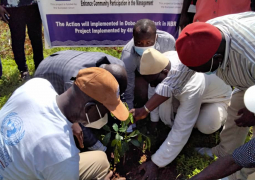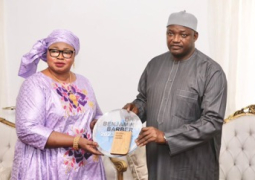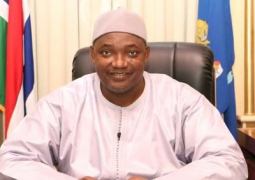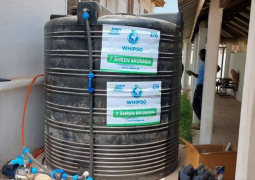
Bensouda, appearing before the Special Select Committee maintained that she could not sign any document purporting to summarise her words unless she had access to the full transcript of the two interviews she had with the investigative panel.
“There is a vast difference between a statement and a summary of an interview,” she told the Committee. “Without the transcripts, unfortunately, I will not be able to adopt any statement as my own.”
The exchange began when Chairperson Hon. Abdoulie Ceesay and Committee Member Hon. Kebba Lang Fofana pressed Bensouda to validate a six-page statement that investigators said reflected her earlier responses. But Bensouda, citing constitutional privilege, argued that as a witness appearing before a parliamentary committee, she enjoyed the same protections as one appearing before the High Court.
“Under no circumstances, in any proceedings in the High Court, will I be required to sign a statement summarized by others,” she stressed. “I have the same privileges as a witness before the High Court.”
Committee members sought to clarify the procedure. Hon. Fofana reminded Bensouda that the Assembly, under Section 108 of the Constitution, was empowered to regulate its own proceedings, and that the “statement” before her was simply the committee’s standard practice, a condensed version of her interview for record purposes.
“This is not a legal proceeding,” Fofana said. “What the committee is taking as a statement is a summarized version of the interviews with investigators.”
Yet, Bensouda insisted that context mattered; her answers to the panel’s questions could not be properly reflected without the full conversation.
“I would like to have context because everything depends on context,” she explained. “If I am given the transcript, I will go through it and confirm whether the statement represents what I said. But without it, I cannot accept it as mine.”
After prolonged back-and-forth between the witness the committee members and counsel assisting the Committee, a compromise was reached. Bensouda’s application to review the full transcript of her interview was granted. The Committee agreed that she could review the transcripts within the Assembly building, compare them with the summarised statement, and then amend or validate the document as needed.
Counsel to the Committee proposed that Bensouda be given the rest of the morning to conduct the review and resume after lunch with her confirmed version.
Bensouda eventually accepted the arrangement but only after ensuring she would have access to the complete transcript or audio recording.
“If you have a printout of the audio recording, because I understand that it was being recorded, I will go through it,” she said. “If you don’t have a transcript, then I’ll have to listen to the audio. Otherwise, it’s very difficult for me to accept it as my statement.”





